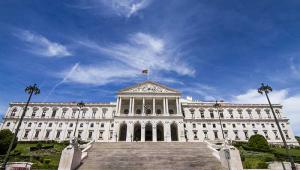The fund said that Brazil could return to gradual growth in 2017, but only if the nation pushes ahead with difficult fiscal reforms.
“The key domestic risk is that the government fails to deliver on the core of its fiscal consolidation strategy,” the IMF said in a statement following its annual visit to Brazil to check the health of the nation’s economy.
“If key reforms are watered down or get stalled in Congress, the boost to confidence will be short lived and the recession may continue.”
Brazil’s once-booming economy plunged into a deep recession two years ago, exacerbated by declining trade, a corruption scandal and an ensuing political crisis. The IMF is forecasting a 3.3% contraction this year before a potential return to 0.5% growth in 2017.
The recession has decimated the country’s public finances, sparking concern about the nation’s ability to repay its debt, which stood at 67.5% of GDP in June.
The south American nation posted a fiscal deficit of more than 10% of GDP last year ($150bn), and is targeting a reduction to $52bn for 2016.
The fund warned that that would require Brazil containing state-level expenditure, which has rocketed in some of its states.
At the federal level, the government is planning a 20-year spending cap, limiting expenditure growth to the inflation rate of the year prior.
It would mark one of the most far-reaching fiscal reforms in the nation in decades, and the fund described it as a potentially “game changing”.
The adoption of a similar rule at state level to contain subnational spending is also required, it added.
“Enacting legislation enabling states to make difficult expenditure adjustments should be part of the strategy to help states regain control of their finances,” the statement said. “A firm commitment by states to reform their finances and increase transparency in the reporting of expenditure is key.”
Measures should be frontloaded, the fund stressed, and Brazil should aim to reach a primary budget surplus of 3.5% of GDP in five years.
In a detailed list of recommendations, it called for expeditious and broad-based social security reform, covering a new retirement age, pension payment levels, access to other benefits and benefit duplication, including for public sector employees.
The link between social benefits and minimum wage also “merits revision”, it continued, and a stronger medium-term fiscal framework should be developed and spending efficiencies be pursued.
Reforms to reduce infrastructure bottlenecks, open up the economy, boost jobs and ease the cost of doing business will also be key, it said, along with transparency, anti-corruption and anti-money laundering measures.














